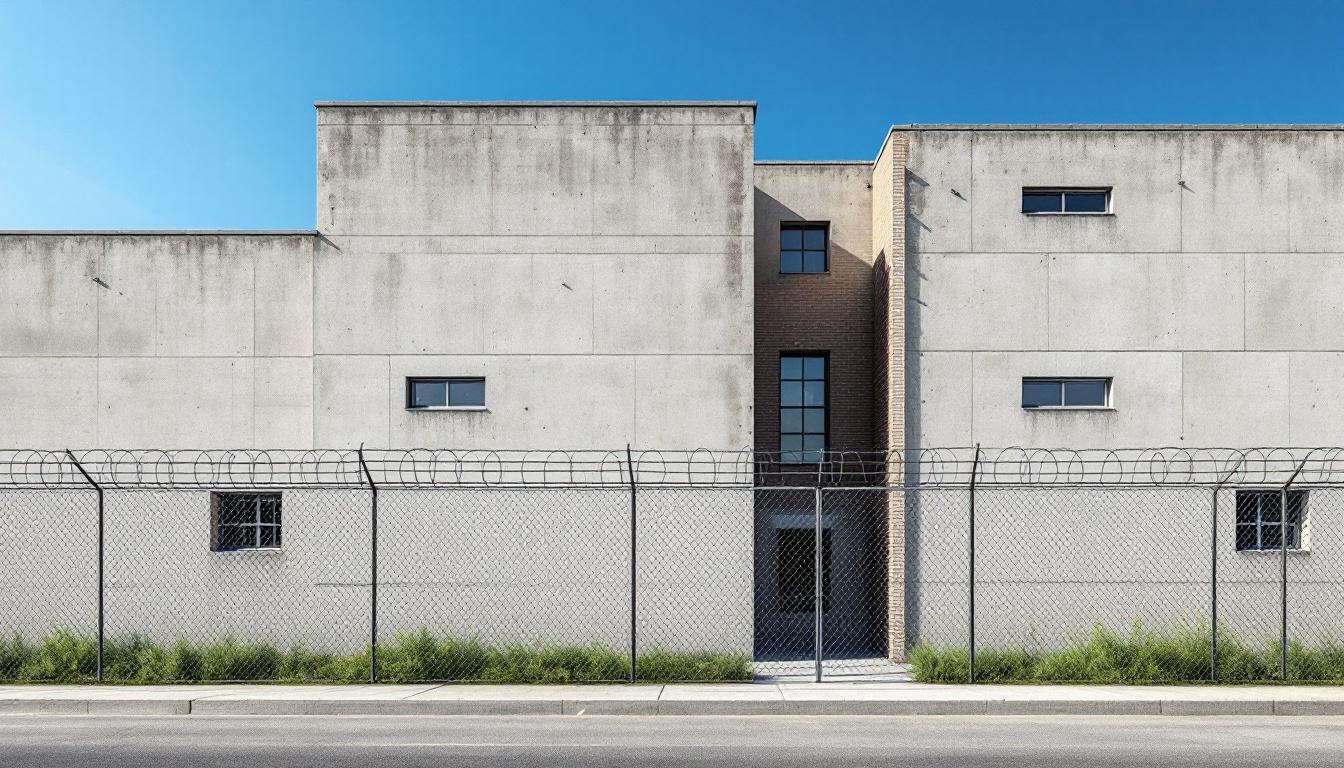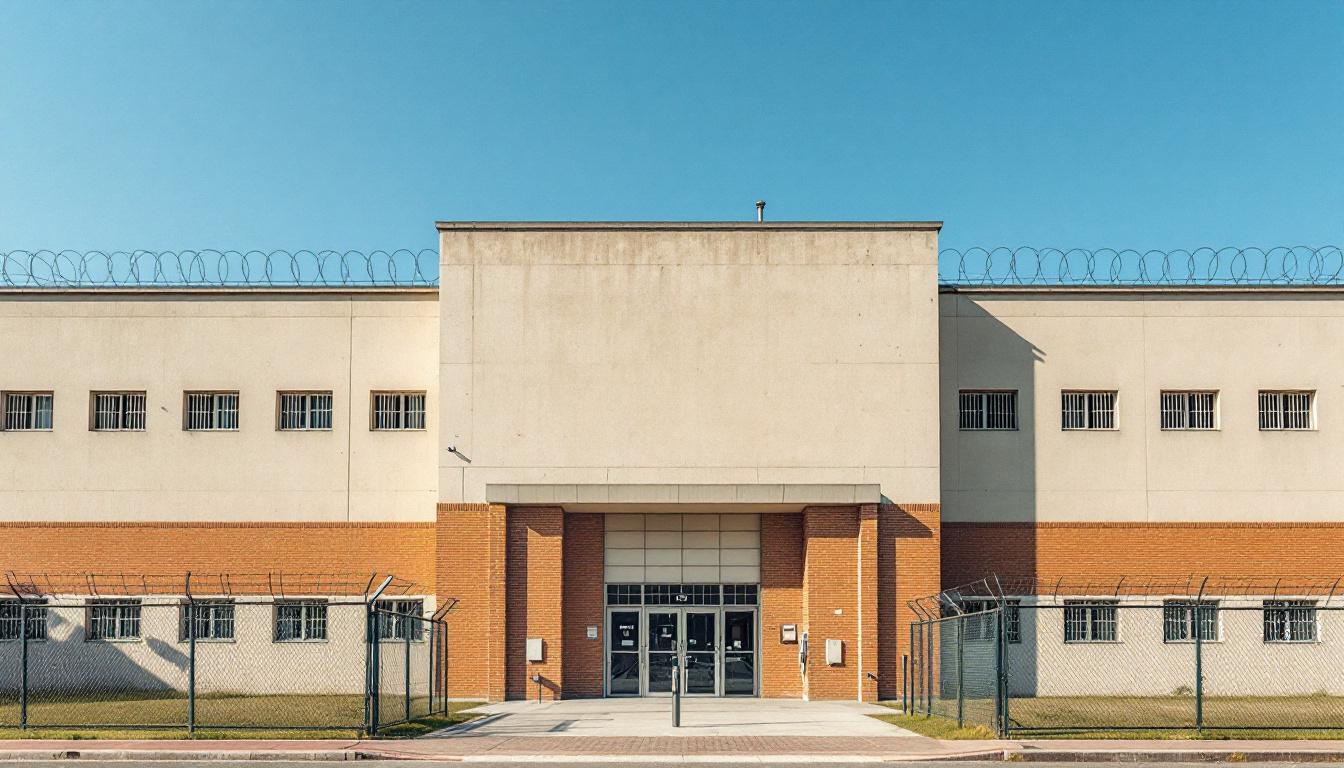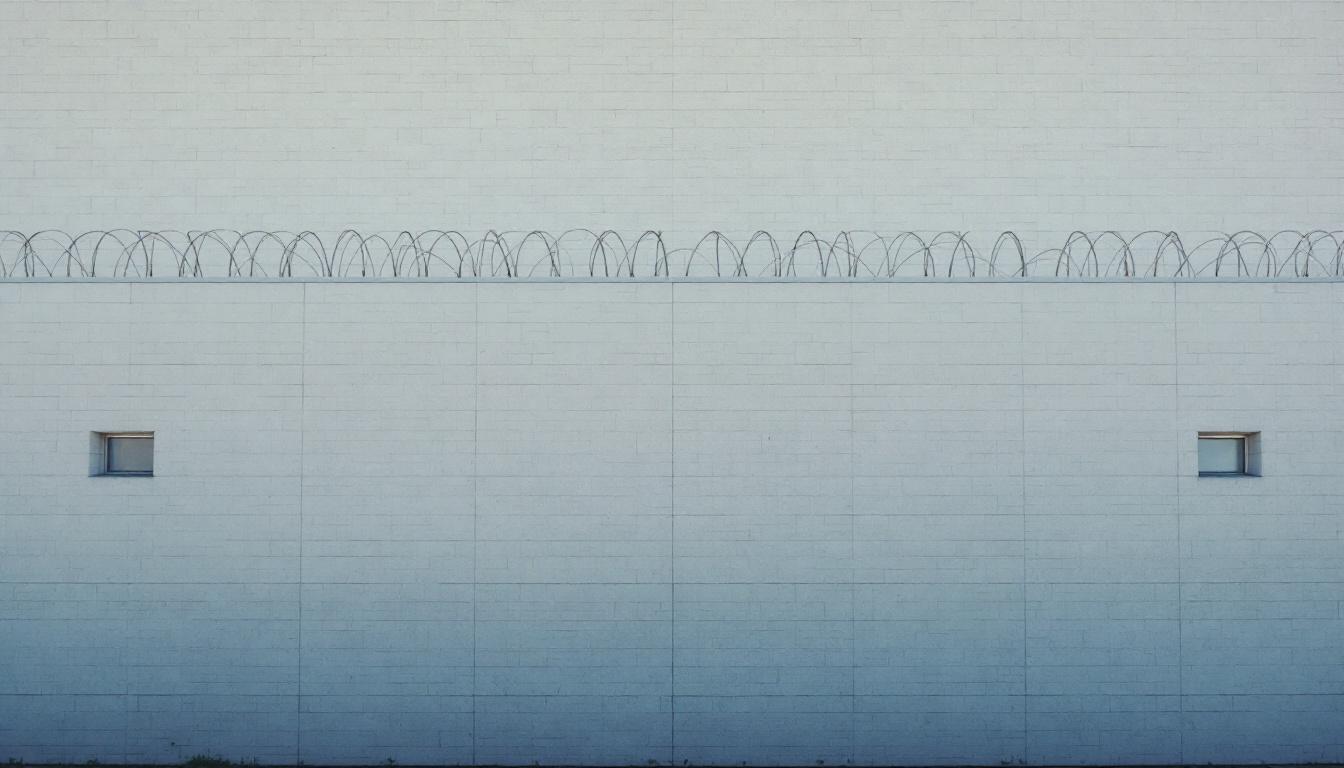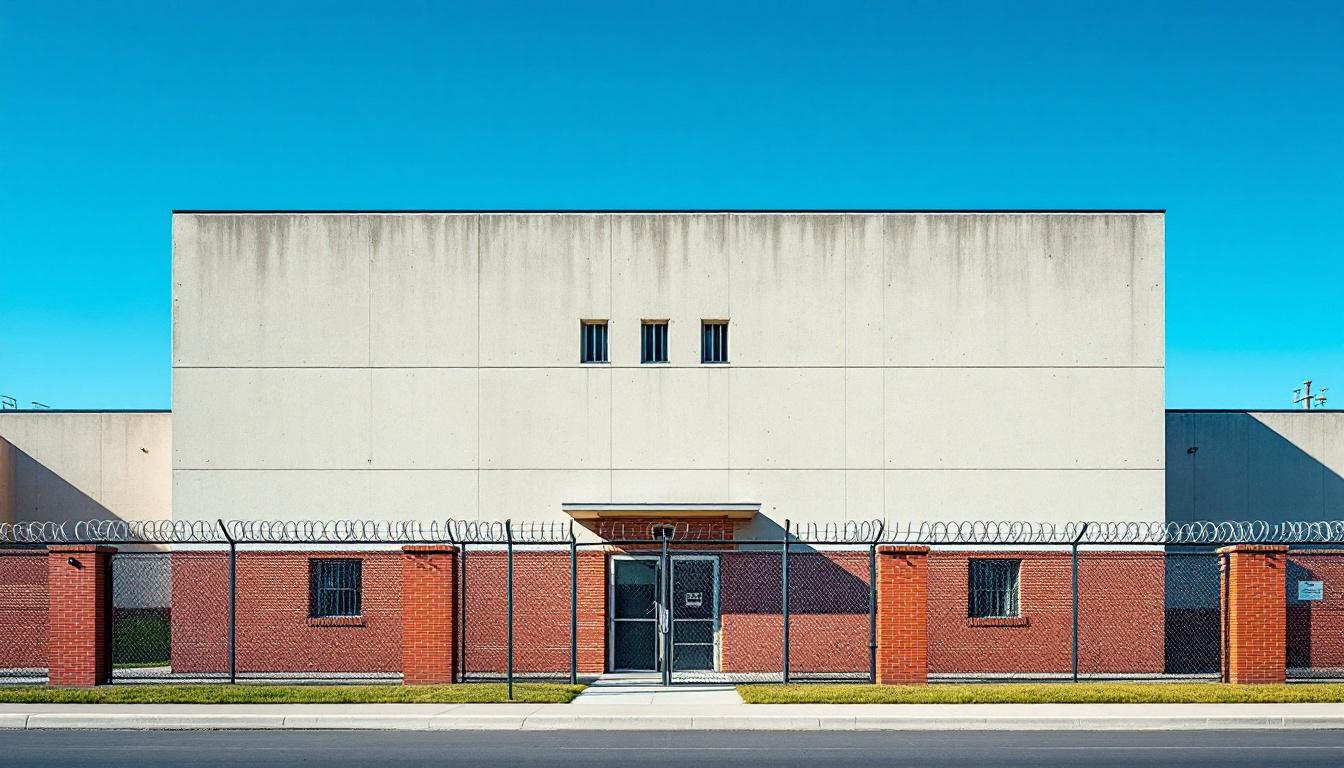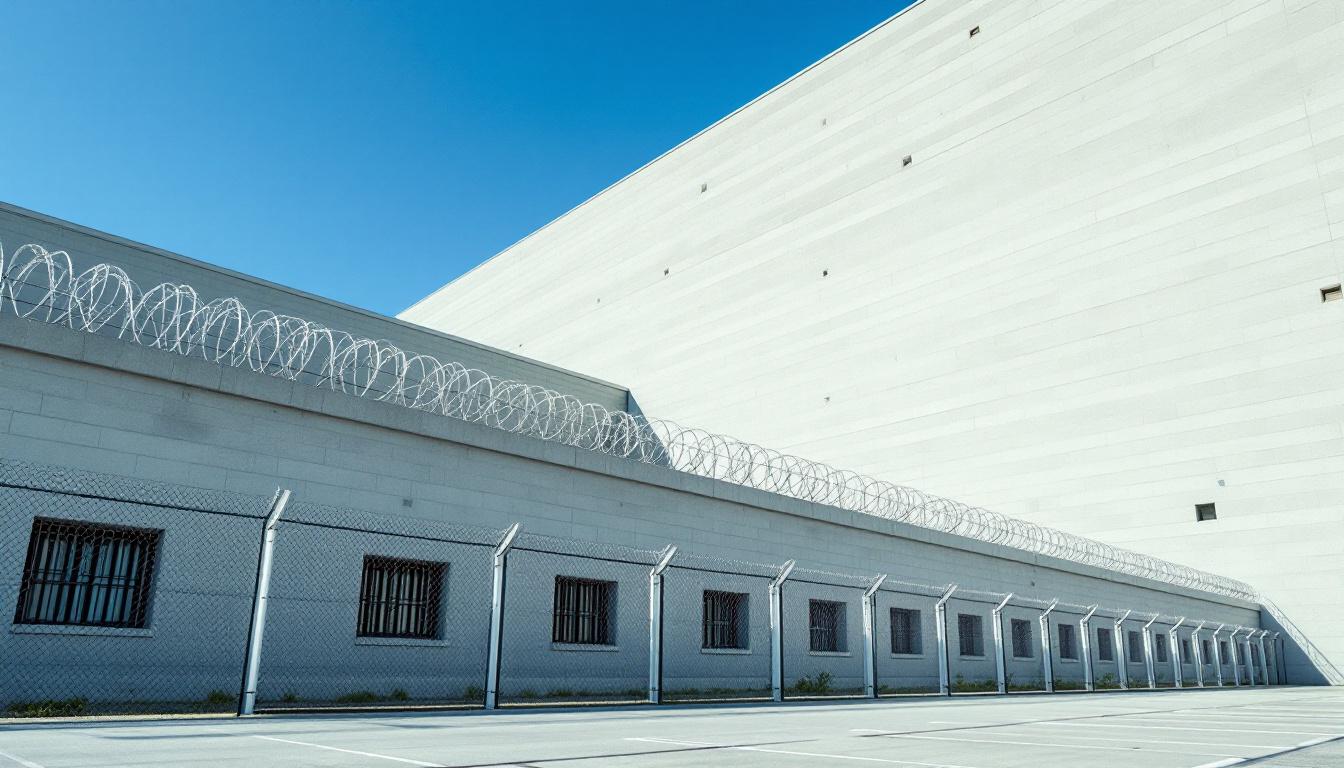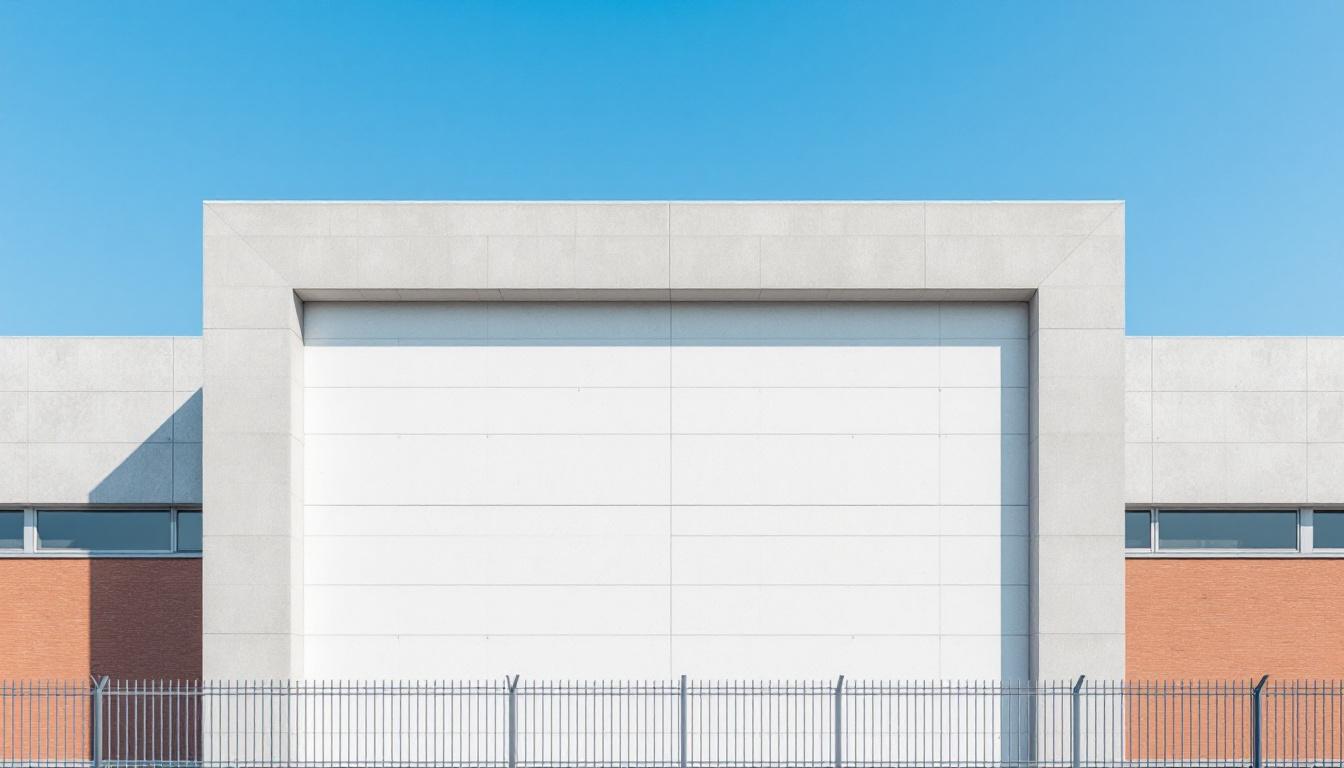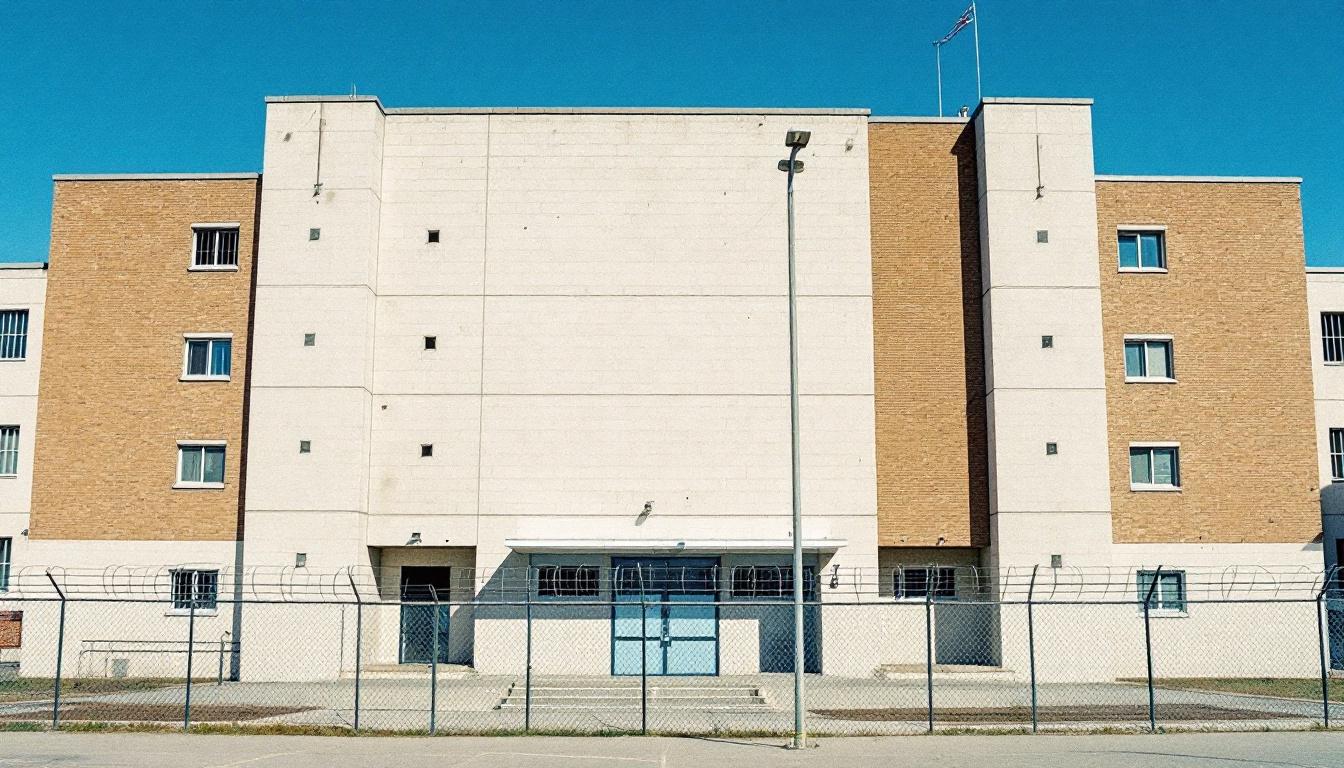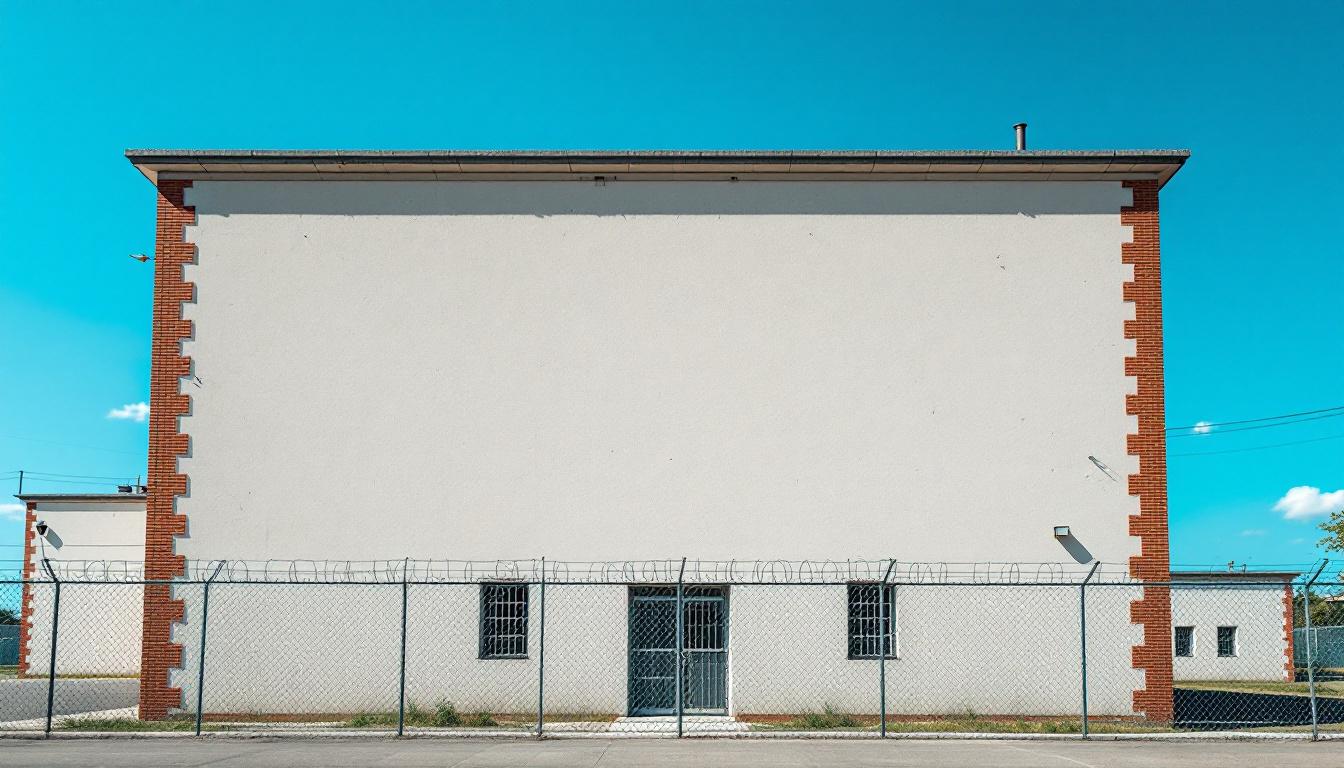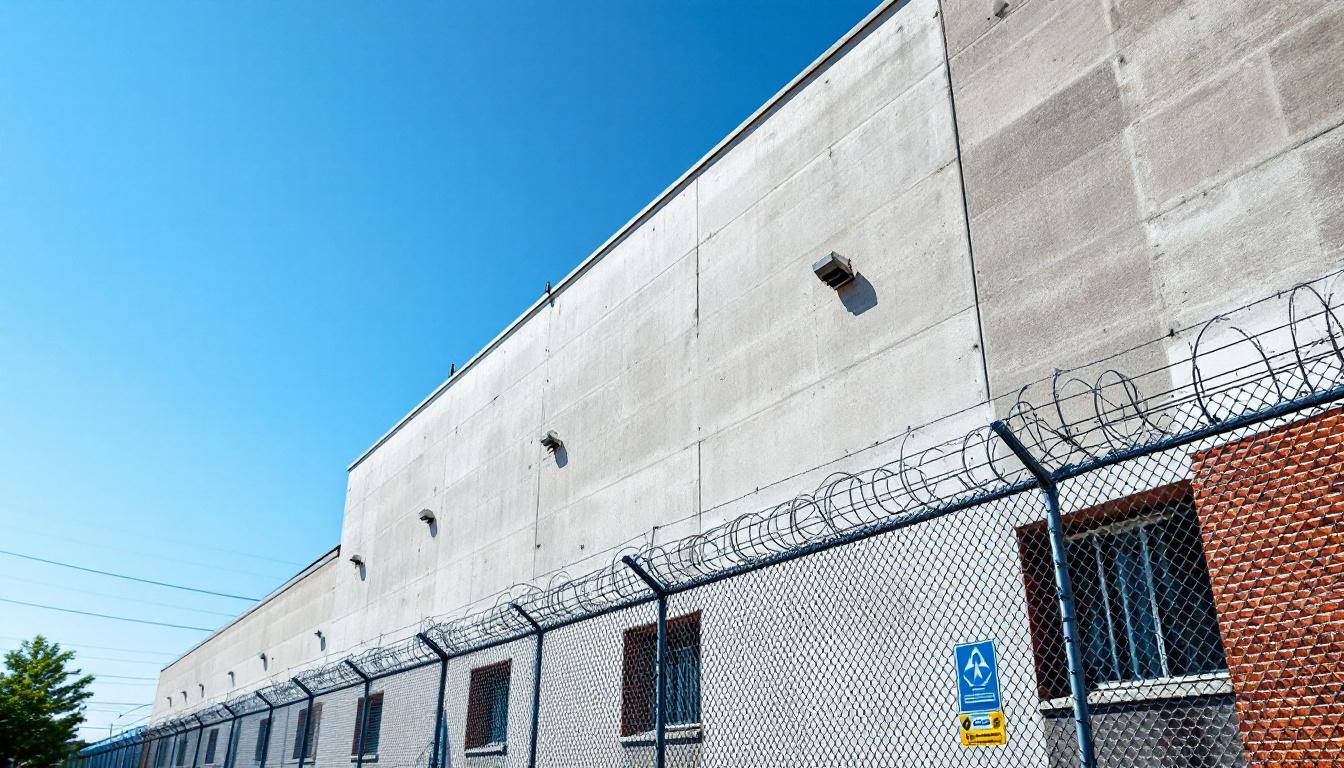
Quick Navigation
How to contact an inmate at Lauderdale County Justice Center
This comprehensive guide will walk you through how to connect with an inmate at Lauderdale County Justice Center. Follow the steps below to find an inmate and send letters and photos:
- Search for the inmate using our search tool below
- Create your account or log in to Penmate
- Write your message (up to 6,000 characters)
- Send instantly - inmates receive printed copies daily
Find an Inmate
Search for an inmate to start communicating today
Tip: You can search by first name, last name, or inmate ID number
To contact a person at Lauderdale County Justice Center start by searching for the person on the facility website. Perform a search by following these steps:
- Step 1: Enter their first name and last name into the search form and click "Search"
- Step 2: Locate their inmate record
- Step 3: Write down their Inmate ID and any housing information provided
Important! Be sure to enter the person's full name. Nicknames should not be used.
How to Send Messages to Inmates

You can use your phone or computer to send emails, letters, and photos to an inmate. Messages are sent electronically to inmate tablets or kiosks at the facility. If you would like to send a message, start by searching for an inmate at Lauderdale County Justice Center.
Sending Photos and Postcards

A great way to send love and support to a loved one at Lauderdale County Justice Center is to send photos and postcards. It only takes a few minutes to send photos from your phone and it makes a huge difference. You can also mail postcards with words of support and inspiration, or design your own postcard for special moments like birthdays and holidays.
Important! Be sure not to send any explicit photos or they may not be approved by the facility. You can also use a photo printing app like Penmate to make sure your photos are printed at the correct size (4x6 or 3x5) and are mailed according to the rules and regulations of Lauderdale County Justice Center.
Frequently asked questions about Lauderdale County Justice Center
-
How long does it take to deliver a message?
If you're sending an email message your letter is usually delivered within 24-48 hours. For messages sent via mail you should expect delivery within 3-7 days. All messages will need be approved by Lauderdale County Justice Center.
-
How much does it cost to send a message to Lauderdale County Justice Center?
You can send a message free using your phone or mail a message via USPS for the price of a $0.60 stamp and envelope. You can also purchase credits or e-stamps from services starting at $1.99.
-
What services can I use to contact an inmate at Lauderdale County Justice Center?
Penmate
You can use Penmate to send letters and photos to an inmate from your phone. It's an easy way to stay in touch during your loved one's incarceration. Use the inmate locator to find an inmate's location and contact information, then you can send messages within a few minutes.
Securus messaging
Securus may be another option for communicating with an inmate at Lauderdale County Justice Center. You can create a friends and family account and purchase credits to send messages. All messages will be reviewed and must be approved by the facility.
JPay
Some county jails and state prisons may support sending messages with JPay. You must register an account with the system, find your loved one, and purchase stamps to send messages. For some locations you can also attach photos.
Smart Jail Mail
You may also check if Smart Jail Mail is available at Lauderdale County Justice Center. Smart Jail Mail is operated by Smart Communications and has contracted with some state and county jails. After purchasing credits, your messages and photos are sent to the facility, printed out, and then handed out to your loved one.
-
What is the mailing address of Lauderdale County Justice Center?
Mailing address:
Lauderdale County Justice Center
675 US-51
Ripley, TN 38063
Phone: (731) 635-2572 -
What are the visiting hours at Lauderdale County Justice Center?
Visiting hours at Lauderdale County Justice Center vary by housing unit and security level. Generally, visits are scheduled on weekends and holidays, with some facilities offering weekday visits. Contact the facility directly at (731) 635-2572 or check their website for the current visiting schedule. Visits typically last 30-60 minutes and must be scheduled in advance.
-
What items are prohibited when sending mail to Lauderdale County Justice Center?
Prohibited items typically include: cash, personal checks, stamps, stickers, glitter, glue, tape, staples, paperclips, polaroid photos, musical or blank greeting cards, hardcover books, magazines with staples, and any items containing metal or electronics. Only send letters on plain white paper with blue or black ink. Photos must be printed on regular photo paper (no Polaroids). Always check with Lauderdale County Justice Center for their specific mail policies.
-
How do I send money to an inmate at Lauderdale County Justice Center?
You can send money to an inmate at Lauderdale County Justice Center through several methods: 1) Online using JPay, Access Corrections, or the facility's approved vendor, 2) Money orders mailed directly to the facility with the inmate's name and ID number, 3) Kiosks located in the facility lobby, or 4) Over the phone using a credit or debit card. Fees vary by method, typically ranging from $2.95 to $11.95 per transaction.
-
Can I schedule a video visit with an inmate at Lauderdale County Justice Center?
Many facilities now offer video visitation as an alternative to in-person visits. At Lauderdale County Justice Center, video visits may be available through services like Penmate, Securus Video Connect, GTL, or ICSolutions. Video visits typically cost $10-20 for 20-30 minutes and must be scheduled in advance. You'll need a computer or smartphone with a camera and reliable internet connection. Contact the facility for their specific video visitation policies and approved vendors.
-
What identification do I need to visit an inmate at Lauderdale County Justice Center?
All visitors must present valid government-issued photo identification such as a driver's license, state ID, passport, or military ID. Minors must be accompanied by a parent or legal guardian who can provide the minor's birth certificate. Some facilities require visitors to be on the inmate's approved visitation list, which may require a background check. Contact Lauderdale County Justice Center for specific ID requirements and visitor approval procedures.
-
How can I find out an inmate's release date?
To find an inmate's release date at Lauderdale County Justice Center, you can: 1) Use the online inmate search tool if available, 2) Call the facility's records department, 3) Contact the inmate's case manager or counselor, or 4) Have the inmate provide this information during a call or visit. For privacy reasons, some facilities only release this information to immediate family members.
Facility Overview
Contact Information
Lauderdale County Justice Center675 US-51
Ripley, TN 38063
Phone: (731) 635-2572

About Lauderdale County Justice Center
Within the broader framework of Tennessee’s correctional infrastructure, the Lauderdale County Justice Center serves as a vital component in addressing the detention and rehabilitation needs of residents throughout the Ripley area and surrounding communities. This TN correctional facility operates within the state’s network of local detention centers, providing essential custodial services while maintaining connections to regional support systems that extend across western Tennessee. The facility’s positioning within Lauderdale County enables it to serve multiple jurisdictions, coordinating with law enforcement agencies and court systems to ensure appropriate processing and housing of individuals within the criminal justice system.
The operational framework of the Lauderdale County Justice Center, TN typically encompasses various inmate services designed to address both immediate detention requirements and longer-term rehabilitative objectives. Programs may include educational opportunities, substance abuse counseling, and vocational training initiatives that align with state correctional standards and community reintegration goals. The facility generally maintains medical services, mental health support, and chaplaincy programs that serve the diverse needs of its population. Through coordination with regional partners, inmates services often extend to include family visitation programs, legal assistance coordination, and pre-release planning that facilitates successful community reentry.
As part of Tennessee’s decentralized correctional approach, this correctional facility in Ripley contributes to the state’s broader public safety mission while addressing local judicial and law enforcement needs. The center typically collaborates with probation services, community corrections programs, and social service agencies to create comprehensive support networks that extend beyond traditional incarceration models. Through these systemic connections, the facility serves not dedicated as a detention center but as a coordination point for various rehabilitation and reintegration efforts that benefit both individual inmates and the broader Lauderdale County community.
Programs & Services
Personal growth and rehabilitation form the cornerstone of service delivery at Lauderdale County Justice Center, where inmates have access to comprehensive resources designed to address the underlying factors that contribute to criminal behavior. The facility typically operates under a philosophy that emphasizes skill-building and personal accountability, recognizing that meaningful change occurs when individuals are equipped with practical tools and emotional support. Through structured programming and individualized attention, inmates often find opportunities to develop new perspectives on their circumstances while building the foundation for successful community reintegration.
Educational services may provide inmates with opportunities to complete their high school equivalency or pursue adult basic education, addressing fundamental literacy and numeracy skills that are essential for employment readiness. These academic offerings often work in conjunction with vocational programs that typically focus on marketable trades and technical skills. Inmates may participate in job training initiatives that cover areas such as construction, food service, or maintenance work, helping them develop practical competencies that can translate directly into employment opportunities upon release.
Additionally, the facility may offer faith-based programs that provide spiritual guidance and community support for those seeking to explore personal values and moral development. Transitional planning services often help inmates prepare for their return to the community by addressing housing, employment, and family reunification needs. Support services typically include intramural sports activities that promote physical wellness and teamwork skills, while domestic violence programs may focus on helping inmates understand relationship dynamics and develop healthier communication patterns. These varied offerings work together to create a comprehensive approach to rehabilitation that addresses multiple aspects of personal development.
Daily Life & Visitation
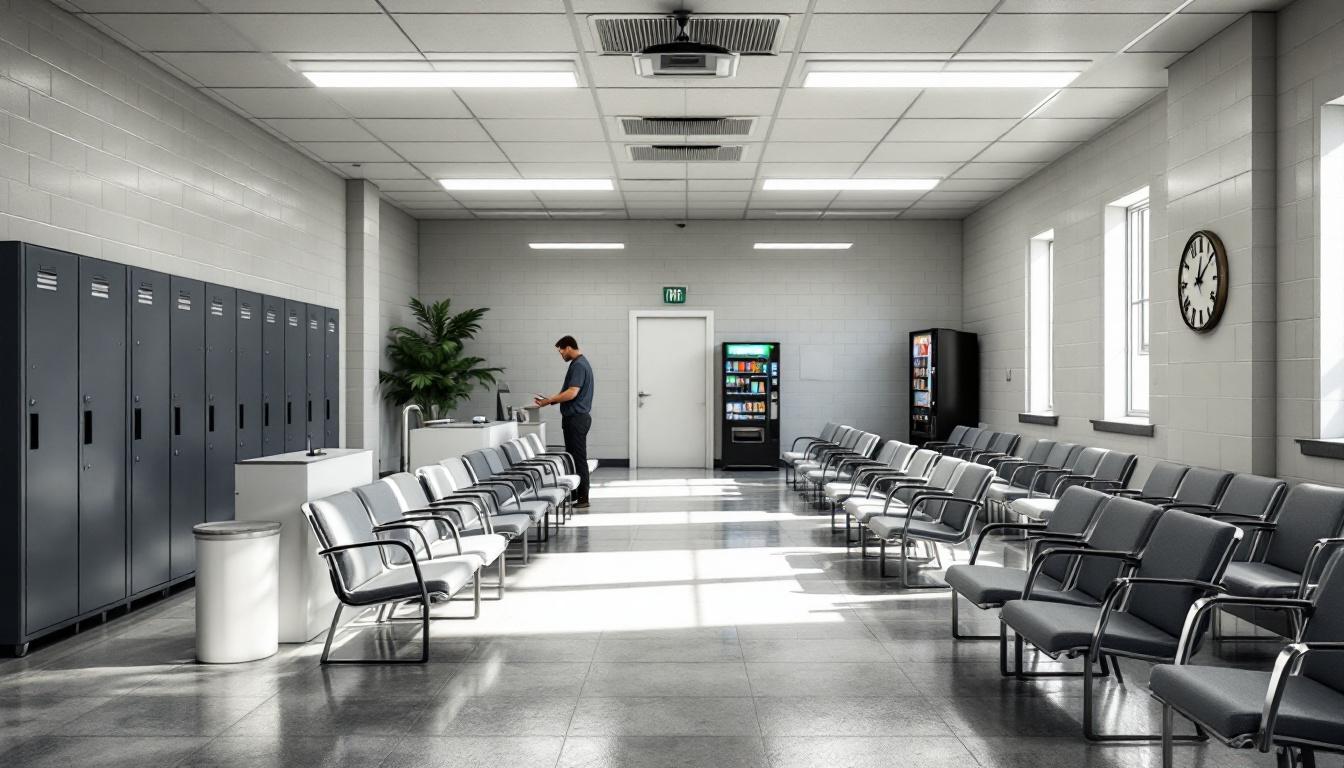
The housing units at Lauderdale County Justice Center feature dormitory-style accommodations and individual cells that shape the daily rhythm of institutional life. Inmates currently follow structured schedules that begin with morning counts and continue through evening lockdown procedures. The facility typically operates on a regimented timeline that includes designated periods for meals, programming, and personal time.
Living conditions generally include shared common areas where inmates may watch television or participate in recreational activities. Additionally, the housing units provide basic amenities such as restroom facilities and areas for personal hygiene. Inmates usually receive three meals daily in designated dining areas, with menu options that meet basic nutritional requirements. Personal property policies typically allow inmates to maintain limited personal items, while commissary services may offer additional food items and hygiene products for purchase.
Programming schedules often include educational opportunities, religious services, and work assignments that help structure daily routines. While recreational activities may provide physical exercise and social interaction, visitation policies generally allow family members to maintain contact through scheduled visits and phone calls. Inmates frequently adapt to this environment by establishing routines around available programming and maintaining connections with their support systems outside the facility. Work assignments within the facility typically include kitchen duties, maintenance tasks, and cleaning responsibilities that contribute to the overall operation of the institution.
Ready to Connect?
Start communicating with your loved one today
Search for an Inmate
